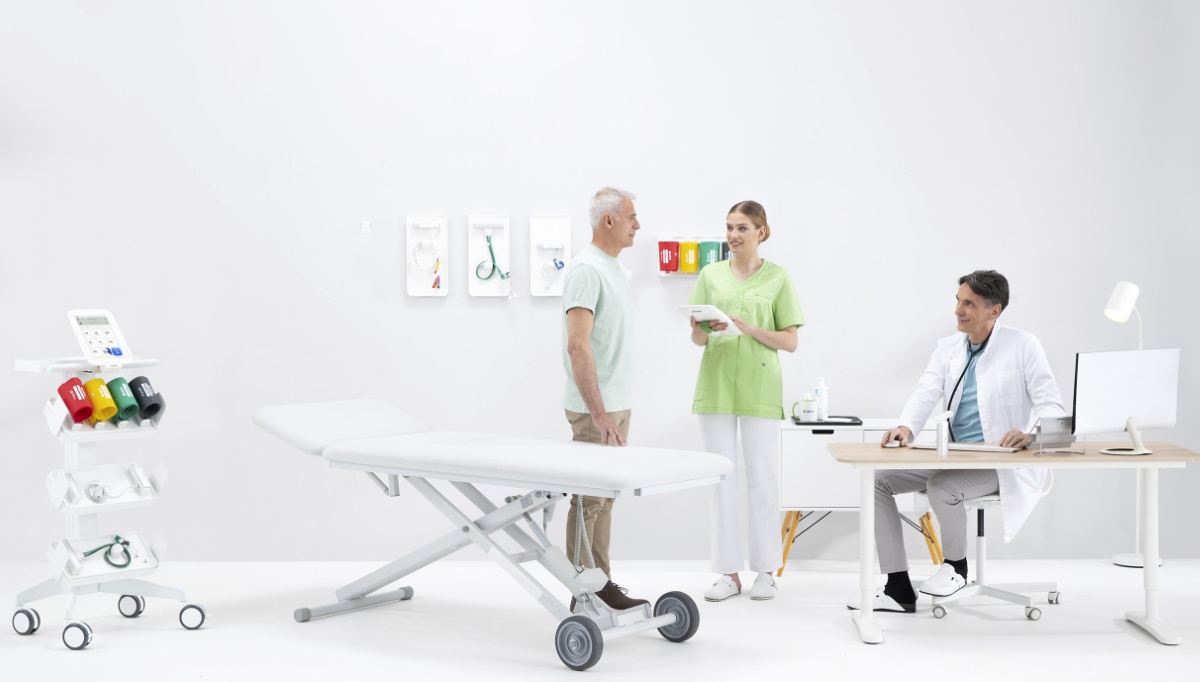How can modern tools help cardiologists?

The rising number of diabetic patients in both developed and developing countries brings a host of serious challenges and exposes pressing issues in the management of this metabolic disorder. One of them is the need for holistic treatment of every patient, necessitating excellent communication between the various specialists involved.
Diabetes mellitus is not the only medical condition that has a profound effect on cardiovascular health, but its association with several serious cardiovascular diseases (CVDs) is also serious. Additionally, treatment of diabetes is fraught with challenges which vary greatly in their scope and severity between patients, making it an ideal case for the need for digitalisation of medical records. The benefits are numerous: simple entry of diagnostic results and comments, traceability of alterations (who, when and why), user profile‑dependent rights, and fast and easy sharing of data between all the participants (general physician, cardiologist, other specialists, nurses, etc.).
Digital medical records or electronic health records (EHR) are quickly becoming the norm in many healthcare facilities. They have already proven to lead to a better quality of care overall and a significant decrease in the number of prescription errors due to poor handwriting, a nearly universal stereotype associated with the medical profession. It should come as no surprise that physicians who use EHR have fewer malpractice claims. A study found that users of EHRs had fewer malpractice claims, while those who did not harness the power of digitalisation had more legal complications.
It should be noted that EHR systems greatly differ in their user-friendliness, ability to share the data over different channels and connectivity with any diagnostic devices. MESI is at the forefront of innovation in this regard as it has developed an integrated solution—a diagnostic device (MESI mTABLET) that can be customised in accordance with the user’s needs and offers instantaneous sharing of data.
Modern practice in cardiology
Despite the best efforts of many government and non-profit medical organisations worldwide, CVD rates are still unacceptably high, and many cardiologists constantly battle with a chronic lack of time they can allocate to each patient [1-8]. Digitalisation of work processes in healthcare aims to ease this problem.
One avenue of approach is mass utilisation of wirelessly connected wearable devices and implantable or even ingestible sensors, which would enable constant monitoring of a patient’s health status and timely warning of potential adverse outcomes [9-10]. Implementation of such a wide ecosystem of interconnected diagnostic devices rests on the prediction that all the challenges associated with big data management will be solved. Fortunately, there are more realistic approaches to improving healthcare, both on the part of the physician and patient. We are talking about the MESI mTABLET, which has already proven its worth in general practice and other healthcare settings.

The MESI mTABLET is a fully customisable, portable diagnostic system encompassing the central unit (medical-grade tablet computer), wirelessly connectable diagnostic modules, MESI mRECORDS software for easy management and sharing of diagnostic results and other patient data and supported by diagnostic apps available at the online MESI mSTORE.
Cardiologists, specifically, would benefit from a combination of MESI mTABLET ECG (electrocardiogram) and MESI mTABLET ABI (Ankle-Brachial Index) modules for fast and easy measurement of basic indicators of cardiovascular health and preventive screening for peripheral artery disease (PAD). With no need for a heavy wheeled stand and constant connection to the mains power supply, the cardiologist can perform diagnostics even outside their office. This makes the MESI mTABLET especially usable for working with older, less mobile patients who are confined to their (retirement) homes or in emergency situations, when there is an acute need for large-scale screening of patients.
Cardiologists can simply select a patient’s profile in MESI mRECORDS, perform a diagnostic test (ECG, ABI or any other supported test, for that matter) and have the results automatically saved in the patient’s EHR and immediately available to share with any user with a PC or mobile device with an internet connection.
Modern tools with enhanced portability and wireless connectivity are the future of modern healthcare and will revolutionise the way clinicians conduct examinations and manage medical records.
Send inquiry